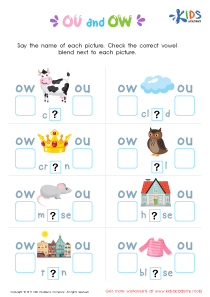Spelling practice Long And Short Vowel Worksheets for Ages 6-8
5 filtered results
-
From - To
Enhance your child's reading and writing skills with our engaging Long and Short Vowel Worksheets designed specifically for ages 6-8! These colorful and interactive spelling practice activities focus on differentiating between long and short vowel sounds, a fundamental building block for literacy. Each worksheet aids in reinforcing phonics concepts in a fun way, encouraging kids to sound out words and improve their spelling proficiency. Whether in the classroom or at home, these resources are perfect for reinforcing essential skills. Download our worksheets today and watch as your child gains confidence in their spelling abilities while exploring the world of vowels!


Let's Check Long Vowels: Assessment Worksheet
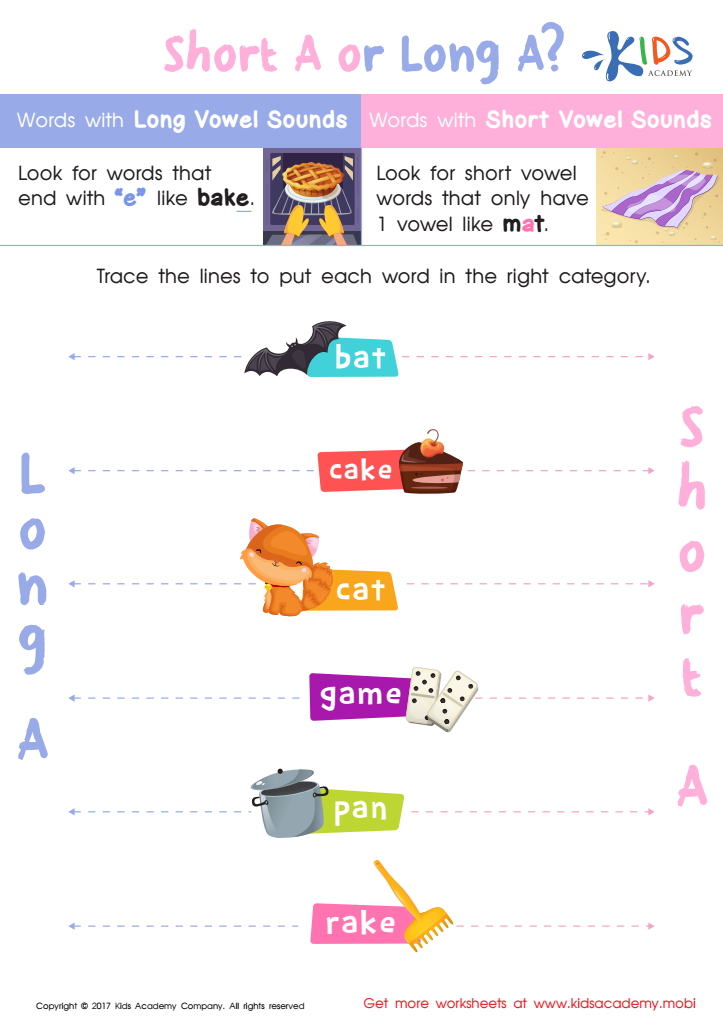

Short /a/ or Long /a/? Worksheet
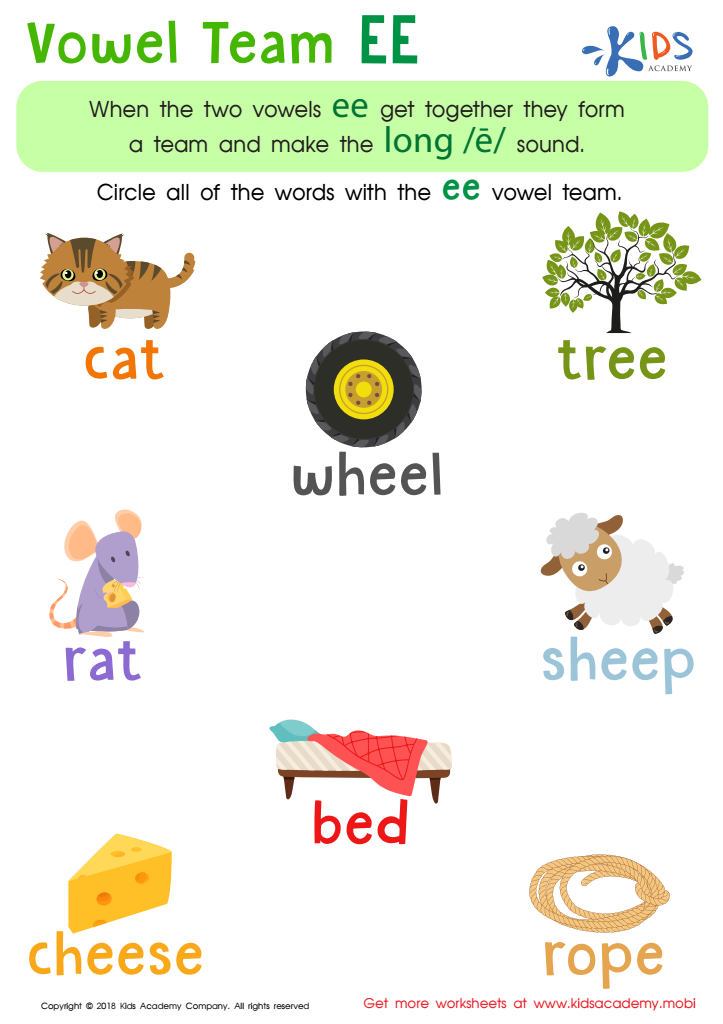

Reading: Vowel Team EE Worksheet
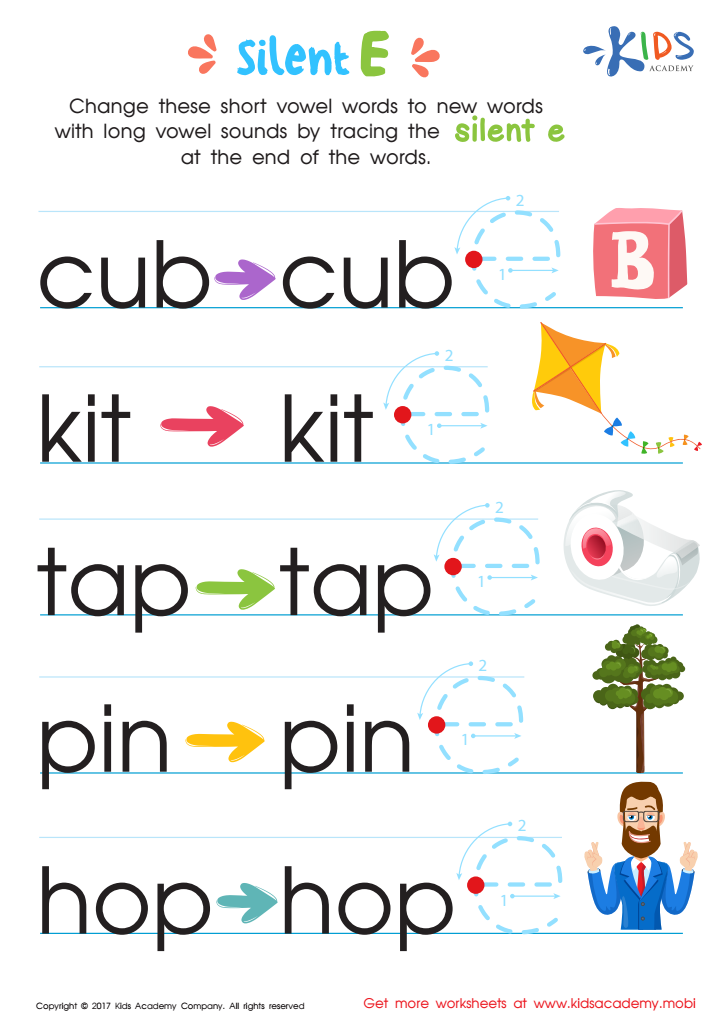

Silent E Words Worksheet
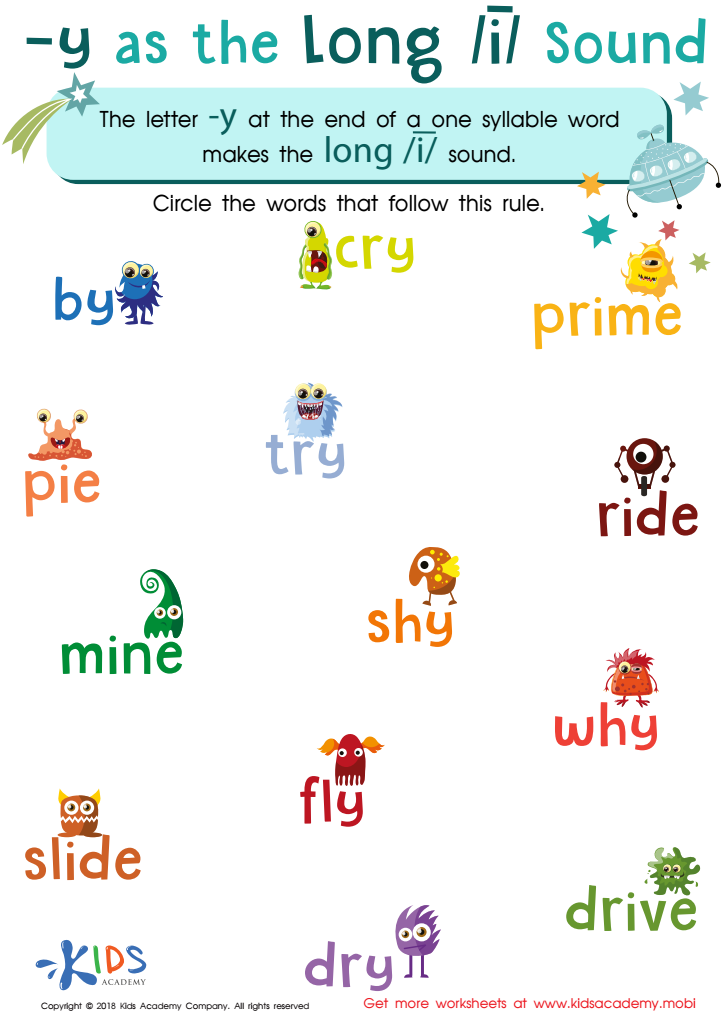

Reading: Y as Long I Worksheet
Spelling practice that focuses on long and short vowels is crucial for children ages 6-8 as it forms the foundation for their literacy development. At this age, children are becoming more proficient in reading and writing, and mastering vowel sounds plays an essential role in their overall language skills. Long and short vowels are fundamental components of the English language, influencing the pronunciation and meaning of words.
Parents and teachers should care about this practice because it directly impacts children’s ability to decode words, which is vital for reading fluency. When children can recognize and sound out both long and short vowels, they gain confidence in their reading abilities, facilitating a more enjoyable learning experience. Additionally, strong spelling skills enhance writing capabilities, enabling kids to express their thoughts clearly.
Focusing on vowel practice encourages phonemic awareness, critical thinking, and a sense of achievement in language arts. By prioritizing spelling practice, parents and teachers can support children in developing essential skills that will benefit them academically and socially as they grow. Moreover, strong literacy skills foster a lifelong love of reading, enhancing their overall educational journey.
 Assign to My Students
Assign to My Students












